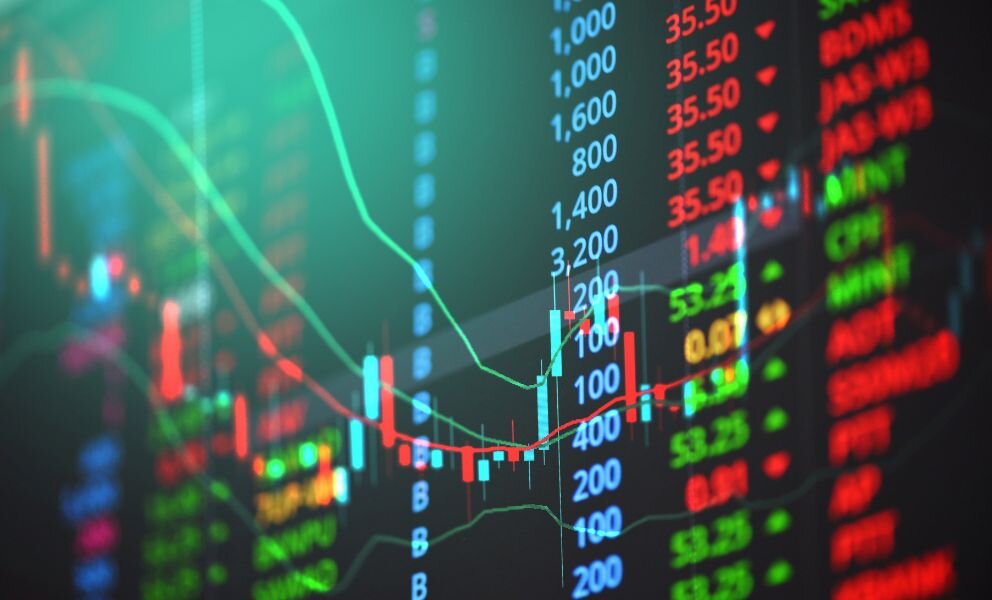
How much money do you need to start day trading in Nigeria?
Key takeaways
Discover the factors that influence how much you need to start day trading.
Learn about the "forex day trading minimum" and leverage in the forex market.
Get actionable tips on how to manage starting capital efficiently.
Starting your trading journey can feel overwhelming - especially with questions about money at the forefront. "How much money do you need to start day trading?"
This is one of the most common queries from beginners, and the answer depends on your goals, strategies, and the market you want to trade. Whether you’re interested in forex day trading or exploring other markets, it’s crucial to understand the associated minimums and risks.
This guide breaks down what beginners in Nigeria need to know about getting started. By the end, you’ll understand how much is required to begin trading, practical budget strategies, and tips for success.
Why does capital matter in day trading?
To understand why the amount you have matters, it’s important to grasp what day trading involves. Day trading is all about buying and selling financial instruments, such as forex, stocks, or commodities, within the same day. The aim is to profit from small price movements.
The capital you begin with determines several key factors:
- The markets you can access.
- The positions you can open.
- The risk-to-reward ratio you can manage.
Without sufficient funds, you may be limited in your opportunities and could face greater risks.

How much money do you really need to start day trading?
The "how much money do you need to day trade?" question has no single answer. It depends on:
- Market Minimums: Different markets come with different requirements.
- Broker Requirements: Most brokers specify a minimum deposit for trading accounts.
- Personal Risk Tolerance: Your financial situation and strategy will play a big role too.
Here’s a closer look at how these factors play out, especially in forex day trading.
Stock market day trading
If you’re interested in day trading stocks, prepare for higher minimums. For U.S. trading, the Financial Industry Regulatory Authority (FINRA) mandates a minimum account balance of $25,000 for "pattern day traders." This can be a steep barrier for beginners - although it could be about to change.
Fortunately, forex day trading often offers a much lower entry point.
Forex day trading minimum
One of the advantages of forex trading is its accessibility. Most brokers, including FXTM, allow traders to start trading forex with little capital. For example, with the FXTM Edge account, you can trade with as little as $50.
Leverage is what makes forex trading so appealing. For example:
- With FX leverage of 50:1, a $100 deposit gives you exposure to positions worth $5,000.
- Some brokers offer even higher leverage, amplifying your potential returns (and risks).
Cryptocurrency day trading
Cryptocurrency is another market gaining popularity in Nigeria, with more flexibility in terms of starting capital. However, the extreme volatility calls for caution. Starting with at least $500 to $1,000 is recommended for better risk management.
Local accessibility in Nigeria
For traders in Nigeria, forex remains the most accessible market. With brokers like FXTM, you can start small and scale gradually. Many Nigerian traders begin with as little as ₦75,000, benefitting from brokers that cater specifically to local needs.

Edge
Beginner traders who want to limit risk while building skills.
From 1.2 pips
No commission
Up to 1:500 (floating)
Forex, Commodities CFDs, Metals, Stock CFDs, Indices CFDs, Cryptocurrency CFDs
What this looks like in the real world
Let's take a quick look at an example of someone new to trading. How might different starting capital impact your trades?
- Example 1: Ruth, a part-time forex trader in Lagos, starts with $200. Using a micro lot size and leverage of 30:1, she grows her account by focusing on low-risk, high-reward setups over three months.
- Example 2: John, an aspiring trader from Abuja, attempts forex day trading with $50. Unfortunately, his over-leveraged positions and lack of risk management result in account losses within weeks.
- Example 3: With $500 and a leverage of 50:1, a forex trader can control $25,000 in currency trades. This means even a small movement in currency prices can lead to significant profits - or losses.

What should beginners keep in mind?
Regardless of how much you start with, the key to successful day trading isn’t just about the amount—it’s about how you use it. Consider these foundational tips:
1. Start Small and Scale
For beginners, starting small is wise. Begin with the forex day trading minimum your broker offers, typically $100-$500 for micro accounts. As you gain experience and improve your trading strategy, you can scale up.
2. Leverage with Caution
While leverage amplifies your trading power, it also magnifies risks. Always be aware of your broker's margin requirements and ensure you don’t over-leverage.
3. Risk Management is King
Effective trading isn’t just about making money—it’s about protecting it. Follow the "1% rule," risking no more than 1% of your account balance on a single trade. For example, with $500, your maximum risk per trade would be $5.
4. Track Your Expenses
Remember to factor trading fees into your budget. These include:
- Spread costs.
- Commissions.
- Swap fees for holding positions overnight (though less relevant for strict day traders).

What next after setting your budget?
Once you’ve determined how much capital to allocate, take the following steps to optimise your trading journey:
Open a demo account
Practise trading on a risk-free platform like the FXTM Practice account. This helps you test your strategies without risking actual money. Use this opportunity to gain market insights and hone your risk-management skills.
Choosing the right broker
Selecting a broker tailored to your needs is critical. Look for a broker offering:
- Low forex day trading minimums.
- Tight spreads and competitive fees.
- Local deposit and withdrawal options in Nigeria.
For example, FXTM is an ideal choice for beginners in Nigeria, as the platform provides customised solutions for local traders.
Learn continuously
Trading is a skill, not a gamble. Invest in educational resources like webinars, tutorials, and trading guides. FXTM’s free resources are a great place to start improving your knowledge.
Common questions about starting capital
Yes, it’s possible to start with $50, particularly in forex markets. However, profits will be limited, and you’ll need to manage your risk very carefully.
With $1,000, you’ll have more flexibility compared to smaller accounts. This amount allows you to trade multiple pairs and better position sizes while adhering to sound risk management.
Forex is typically the go-to for traders with smaller budgets, thanks to its low barriers to entry and high liquidity.
The bottom line
Success in trading isn’t about starting with a lot of money, it’s about starting smart.
Beginners in Nigeria should focus on forex day trading, which offers a low entry barrier and opportunities to grow accounts over time. Whether your starting capital is $50, $500, or more, patience and discipline are your best investments.
Now is the perfect time to take the next step in your trading career. Open a FXTM Edge account today and start trading with a trusted broker that prioritises your success.